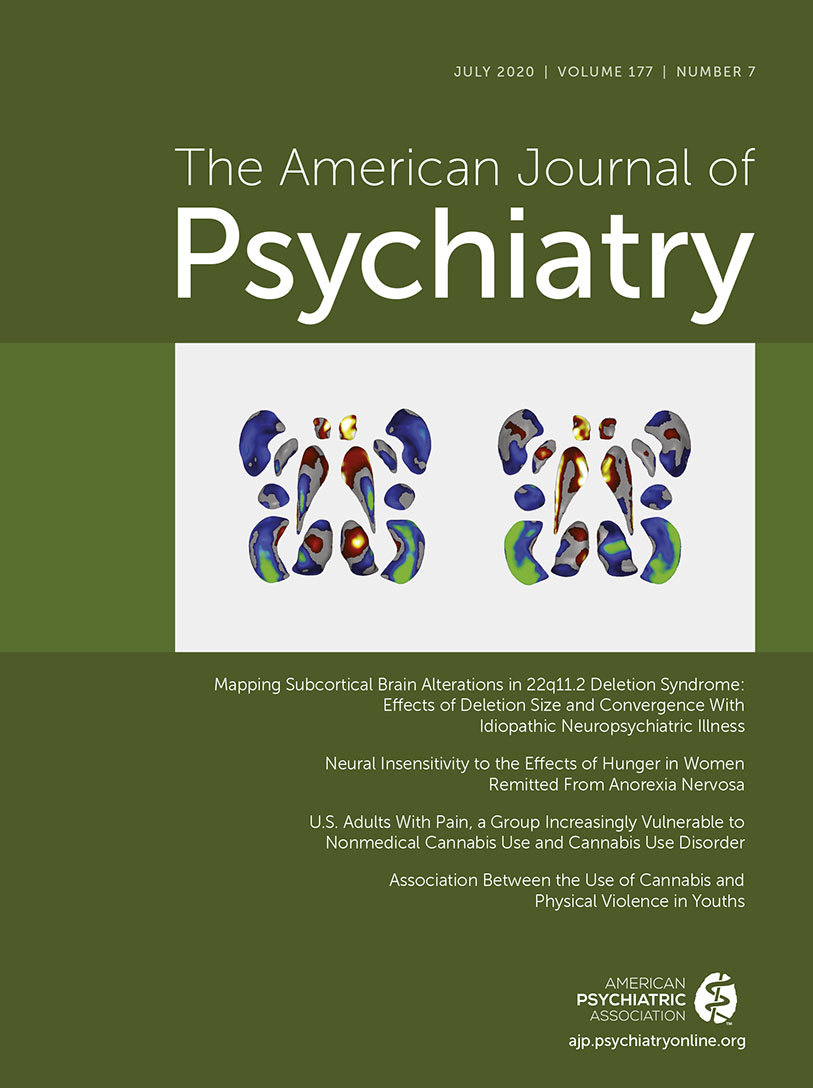To the Editor: Here we report the successful and rapid implementation of telehealth to conduct hospital psychiatry services at a large academic hospital. In response to the unprecedented challenges that COVID-19 presented to our hospital system, both in terms of minimizing the use of personal protective equipment and of maximizing social distancing, we deployed a comprehensive telehealth solution that allowed us to deliver outstanding patient care and maintain our educational mission. We converted all of our clinical workflows, both inpatient psychiatry and consultation-liaison psychiatric services, to a telehealth model in a matter of days.
Since implementation of the telehealth program, all daily staffing and rounding encounters on inpatient psychiatry were completed by video (average daily census, 8.5, range=5–15), and 96% of medical/surgical and emergency department consultations were completed remotely (110 in total, with five in person). The decision for in-person consultation was made after an initial attempt at video assessment failed because of severe behavioral disturbances in the setting of delirium or psychosis.
On the inpatient psychiatry unit, specific situations that require in-person evaluation by a physician include physical examination of patients admitted directly from nonmedical locations or the emergence of new physical symptoms that cannot be adequately assessed via video. Management of behavioral emergencies is initiated by nursing staff, with physicians participating through the telehealth system. Clinical services that consult to the inpatient psychiatry unit that require physical interaction with patients (e.g., neurology, surgery, medicine, physical therapy) have adopted hybrid models, with a mixture of in-person and video assessment, while others (e.g., addiction medicine) use telehealth.
There were many factors that facilitated the rapid implementation of telehealth. Our hospital system has a comprehensive electronic medical record system that allows for remote management of hospitalized patients. Our institution has a telemedicine group that previously deployed a platform, fully compliant with the Health Insurance Portability and Accountability Act of 1996, for stroke, for a virtual intensive care unit, and for specialty consultation (including psychiatry) to regional facilities. This experience established a technological base on which to rapidly expand. The institutional leadership within the Department of Psychiatry and the health care system was extremely supportive. An existing culture of teamwork across clinical disciplines (e.g., physicians, nursing, social work, psychology, occupational therapy, pharmacy) provided a foundation for the transition to telehealth. Each discipline was engaged in the implementation of the system, particularly frontline nursing staff who remain the primary on-site staff. This has placed an additional time burden on the nursing staff because they physically coordinate the use of the system with patients. Therefore, other clinical providers must use the system efficiently to minimize the impact on the nursing staff’s patient care responsibilities.
The functionality of the software allowed us to continue our daily workflows seamlessly. Specifically, we were able to maintain our morning multidisciplinary treatment planning meeting, clinical rounds, and supportive psychotherapy. It was also critical to sustain the educational mission within our department. A telemedicine platform supporting real-time interviews between patients and multiple clinicians (e.g., nurse, resident, and attending) was pivotal in allowing us to maintain high-quality, patient-based teaching for our trainees.
These critical elements allowed for rapid acceptance of telehealth by staff and patients. We believe that for the duration of the COVID-19 crisis, widespread use of telehealth systems will allow hospital-based psychiatry services to remain open, active, and clinically effective while satisfying the needs to preserve personal protective equipment and maximize social distancing.

